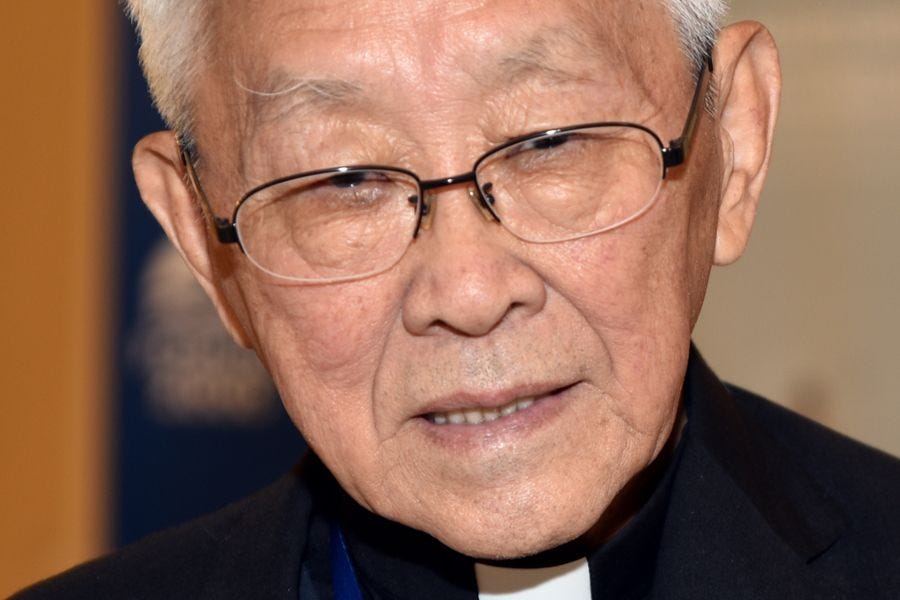Cardinal Zen appears in court
The 90-year-old cardinal arrived at West Kowloon Magistrates’ Courts walking with the help of a cane.

Cardinal Joseph Zen Ze-kiun appeared in court in Hong Kong Monday at the start of his criminal trial.
The 90-year-old cardinal was originally due to face trial on Sept. 19, but the hearing was postponed after a judge in the case tested positive for COVID-19.
Zen arrived at West Kowloon Magistrates’ Courts Sept. 26 wearing a white face covering and gray cl…
